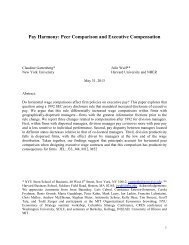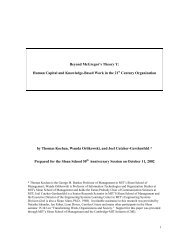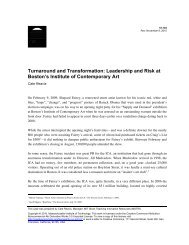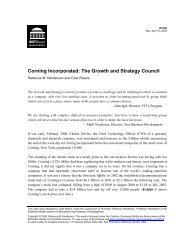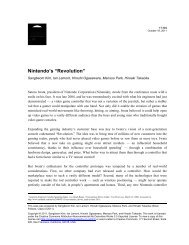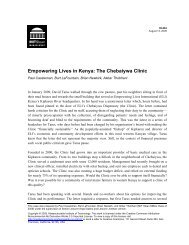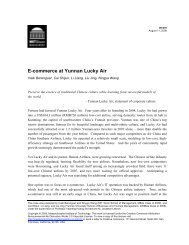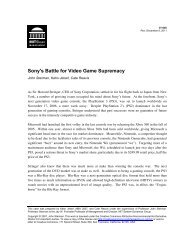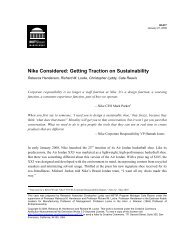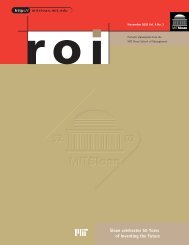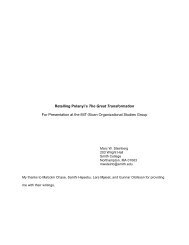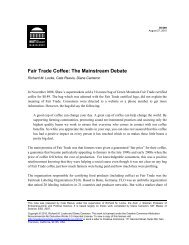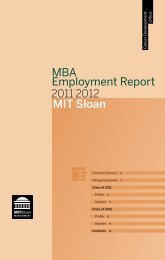Understanding earnings quality - MIT Sloan School of Management
Understanding earnings quality - MIT Sloan School of Management
Understanding earnings quality - MIT Sloan School of Management
Create successful ePaper yourself
Turn your PDF publications into a flip-book with our unique Google optimized e-Paper software.
estatements follows directly from the prediction that internal controls lower intentional and<br />
unintentional errors.<br />
5.3.3 Managerial ownership<br />
There are two competing theories about the incentives that managerial ownership provides<br />
for accounting choices: an entrenchment effect (i.e., controlling shareholders extrapolate private<br />
benefits at the expense <strong>of</strong> minority shareholders) and an incentive alignment effect (i.e., controlling<br />
shareholders’ benefits are closely tied to firm value). These two effects predict different directions<br />
for the association between ownership concentration and <strong>earnings</strong> <strong>quality</strong>. The evidence on which<br />
effect dominates is mixed.<br />
Two early studies find that management controlled firms are more likely to choose an<br />
accounting method (e.g., the depreciation method) that increases reported <strong>earnings</strong> or smoothes<br />
<strong>earnings</strong> than owner controlled firms (Smith, 1976; Dhaliwal, Salamon, and Smith, 1982), which<br />
supports the entrenchment effect. Warfield, Wild, and Wild (1995) find that managerial ownership<br />
is negatively related to the magnitude <strong>of</strong> discretionary accruals and is positively related to<br />
informativeness <strong>of</strong> <strong>earnings</strong>. Wang (2006) documents identical results for founding family<br />
ownership. Similarly, Gul, Chen, and Tsui (2003) document that managerial ownership has a<br />
mitigating effect on the positive association between audit fees and discretionary accruals. These<br />
results support the incentive alignment effect. In contrast, Larcker et al. (2007) find that insider<br />
power, primarily measured by managerial ownership, is positively associated with discretionary<br />
accruals and restatements. LaFond and Roychowdhury (2008) find a negative relation between<br />
managerial ownership and asymmetric timeliness, which they characterize as supporting a demand<br />
for conservatism to mitigate the potential entrenchment effect.<br />
95



